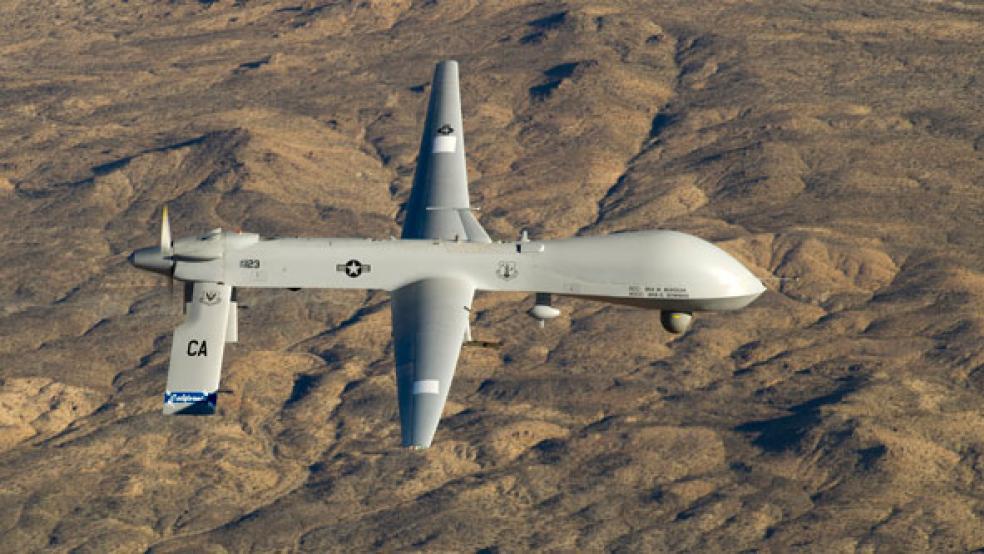Business, social science and history have traditionally been the most popular undergraduate majors, but a degree in Unmanned Aircraft Systems could join the ranks. Offered by a steadily growing number of institutions including the University of North Dakota, Embry-Riddle Aeronautical University in Daytona Beach, Florida and Kansas State University's Salina campus, these majors teach students how to fly and maintain unmanned aircrafts and their operating systems. Even more schools like Northwestern Michigan College and Oklahoma State University offer minors, associate or graduate degree programs in drone technology.
PHOTO GALLERY: Click Here to See 10 High-Tech College Classes
"From an engineering perspective, unmanned aircraft provide an excellent venue for the teaching of systems engineering," says Ben Trapnell, associate professor of Aeronautics at the University of North Dakota. "The disciplines of aeronautical, electrical, mechanical engineering, and computer sciences must be brought to bear when developing [unmanned aircraft systems]."
Some schools are finding applications for unmanned aircraft systems that extend far beyond aerospace or engineering. The University of Nebraska-Lincoln and the University of Missouri are looking at how drones can impact journalism, particularly for reporting on large-scale environmental disasters, and conducting investigations.
Schools like the University of Florida Gainsville use drones to monitor natural resources and conduct agricultural research. Trapnell adds that potential research uses for unmanned vehicles is "nearly endless" and includes applications in robotics, geology, wildlife conservation, public safety, infrastructure protection and atmospheric sciences. According to the Electronic Frontier Foundation, a nonprofit digital rights group based in San Francisco, 34 colleges and universities applied for unmanned aircraft systems licenses last year.
The subject of drone use, however, is controversial in light of Kentucky senator Rand Paul's push to force the Obama administration to clarify its position on how and when armed military drones can be used to target suspected terrorists both at home and abroad. Opponents have also raised concerns about surveillance capabilities of police and personal drones and privacy issues for everyone else. About 30 states have proposed drone legislation and the FAA is reviewing regulatory issues, according to the American Civil Liberties Union. How those laws will impact higher education programs remains to be seen.
RELATED: Death by Drones: Are They Worth the Cost?
"What we'd really like to see are really robust, comprehensive protections put into place that would protect individual rights and privacy," says Amie Stepanovich, a lawyer at the Electronic Privacy Information Center in Washington D.C. "In the university context, we'd like to see students at least exposed to these issues and taught that they're significant, so that their sensitivity to the issues is not impacted through the use of this technology at a younger age." Though many degree programs do include coursework on the ethical challenges of unmanned aircrafts, such training is not legally required.
Proponents claim that drone education may come in handy in the near future. The Association for Unmanned Vehicle Systems International estimates that the unmanned aircraft industry will create 70,000 new jobs in the next three years and more than 100,000 by 2025.
Unmanned aircraft majors aren't the only college students working with cutting edge technologies. Click here to see ten high-tech courses that are also wooing students who want a glimpse of the future.

